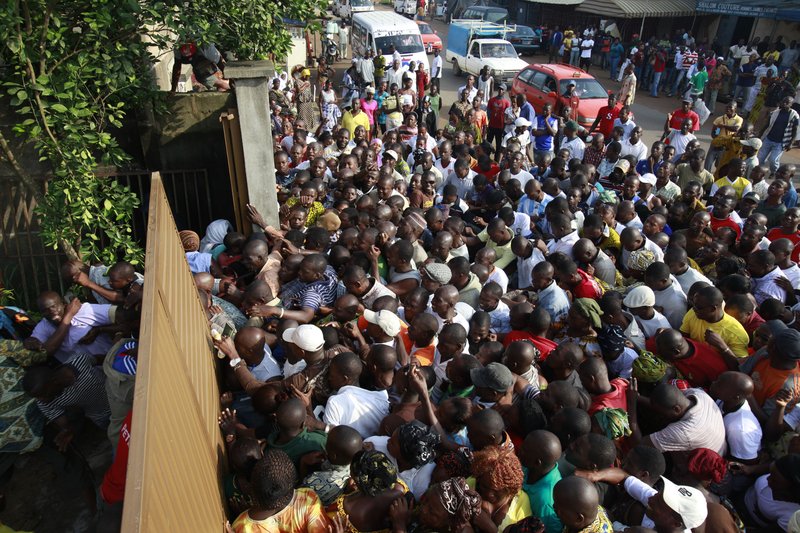Millions of people voted largely without incident on Sunday in a long-overdue presidential election in Ivory Coast, the final step toward reuniting the country eight years after a civil war divided it in two.
Some of President Laurent Gbagbo’s supporters built barricades in the western cities of Divo and Lakota, in an effort to prevent voters for opposition candidate, Alassane Ouattara, from getting to the polls, said Christian Preda, head of the European Union election observation mission.
In the central city of Gagnoa, Ouattara supporters blocked access to a downtown polling station, forcing police to intervene.
“They stole my phone and wouldn’t let me vote,” said Sekou Coulibaly, a 25-year-old cocoa buyer who supports Gbagbo. “We came back with 4x4s and pushed through the crowd,” he said, adding that he was able to vote later in the day.
The runoff of the country’s first election in a decade will see voters choose between Gbagbo and the man he accuses of being behind the rebellion that sought to topple him, Ouattara.
“This is the first time we’ve had a real election here,” said Arsene Gomon, 76, a retired postman at a polling station in the Blokosso neighborhood of Abidjan. An election that isn’t decided in advance, between candidates with legitimate platforms “shows us what a real democracy is like,” he said.
While the election is a sign of national reconciliation after a short civil war in 2002 and the ensuing eight year stalemate, it also brings out the divisions that led to the war.
“I’m here to get rid of a rebellion that’s gone on too long already,” said student Vaffiriki Diomande at a polling station in the chic neighborhood of Cocody. “Tonight, when the results are in, it will be all over.”
A nationwide curfew went into effect on the eve of the election, keeping many electoral officers from arriving on time, and forcing many polling stations to open late.
At the Sainte Jeanne voting station in Abobo, an impoverished neighborhood in Abidjan, a line of impatient voters surged forward and broke down the doors that were still closed an hour after the 7 a.m. official opening time.
While the voting for the most part took place peacefully, recent violence, in which at least six people have died, has stoked fears that the situation could degenerate if the results aren’t accepted.
Gbagbo received 38 percent in a first round of voting in October, while Ouattara came second with 32 percent. Since then, third-place finisher Henri Konan Bedie has embraced his role as kingmaker, throwing his 25 percent support behind Ouattara.
The first round went well because everyone could vote for their candidate of choice, said sociologist Fahiraman Kone. In the runoff, ethnic tensions are now coming to the fore because everyone has to pick sides, he said.
The pre-election violence took on ethnic overtones, as Gbagbo supporters from the Bete ethnic group have been targeted by Baoule voters who supported Bedie in the first round, but transferred their allegiance to Ouattara.
Security forces have been reinforced across the country, though they kept a low profile during the vote, keeping watch at major intersections and setting up checkpoints along major roads. Officials warned that they would act harshly against agitators.
Gbagbo imposed a nationwide nightly curfew on the eve of the vote in an attempt to head off violent protests, but the opposition rejected it claiming it opens the door to electoral fraud.
Despite calls to lift the curfew from the electoral commission, and efforts to find a solution by crisis mediator Blaise Compaore, the curfew went into force the night before the election.
Ouattara announced early in the day that he had come to an agreement with Gbagbo to lift the curfew, but Gbagbo denied this and said that the curfew stands as before.
